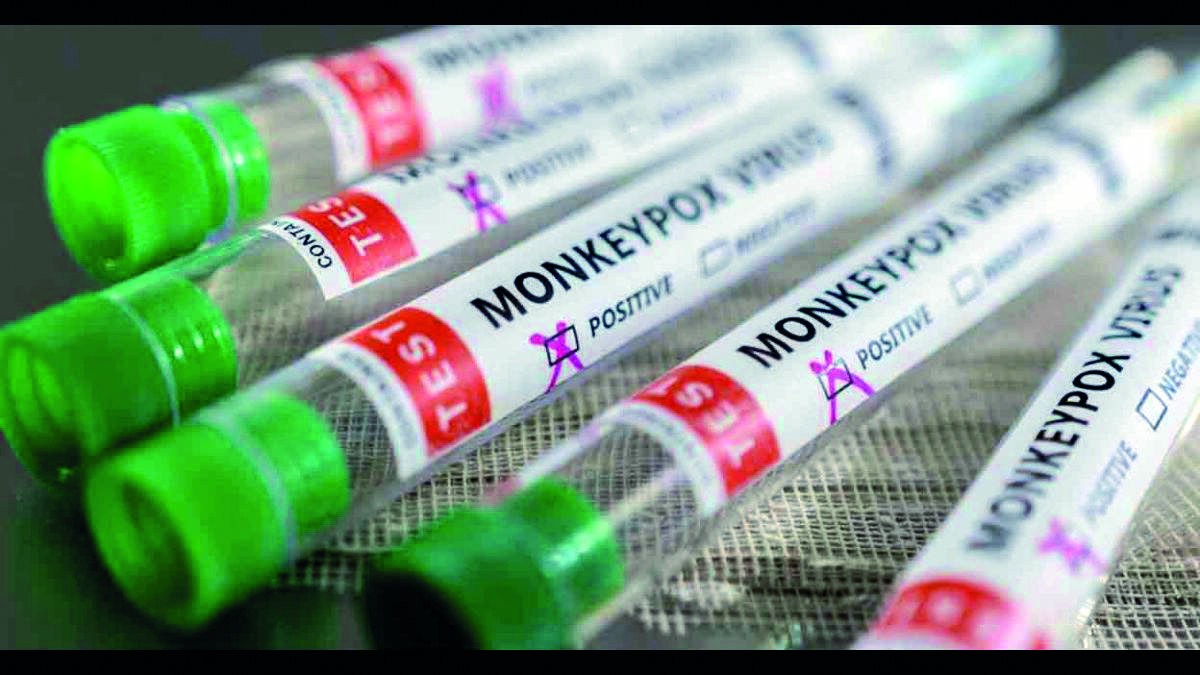Centre issues guidelines to manage monkeypox disease

New Delhi: Amid increasing cases of monkeypox being reported in non-endemic countries, the government on Tuesday issued guidelines directing district surveillance units to consider even one such case as an outbreak and initiating a detailed investigation through the Integrated Disease Surveillance Programme.
In the 'Guidelines on Management of Monkeypox Disease' issued to states and union territories, the health ministry stressed on surveillance and rapid identification of new cases as the key public health measures for outbreak containment, mandating the need to reduce the risk of human-to-human transmission.
It stated that India needs to be prepared in view of the increasing reports of cases in non-endemic countries even as no case of monkeypox virus has been reported in the country till date.
The guidelines proposed a surveillance strategy to rapidly identify cases and clusters of infections and the sources of infections as soon as possible in order to isolate cases to prevent further transmission, provide optimal clinical care, identify and manage contacts and protect frontline health workers and effective control and preventive measures based on the identified routes of transmission.
According to the guidelines, a confirmed case is laboratory confirmed for monkeypox virus by detection of unique sequences of viral DNA either by polymerase chain reaction (PCR) and/or sequencing.
All the clinical specimens should be transported to the apex laboratory of ICMR-NIV (Pune) routed through the Integrated Disease Surveillance Programme (IDSP) network of the respective district or state.
Monkeypox has been reported as endemic in several other central and western African countries such as Cameroon, Central African Republic, Cote d'Ivoire, Democratic Republic of the Congo, Gabon, Liberia, Nigeria, Republic of the Congo, and Sierra Leone. However, cases have been also reported in certain non-endemic countries like the US, the UK, Belgium, France, Germany, Italy, Netherlands, Portugal, Spain, Sweden, Australia, Canada, Austria, Israel and Switzerland.
The health ministry said it continues to maintain a close watch over the evolving situation.
The document mentions that human-to-human transmission occurs primarily through large respiratory droplets generally requiring a prolonged close contact. It can also be transmitted through direct contact with body fluids or lesion material, and indirect contact with lesion material, such as through contaminated clothing or linens of an infected person.
Animal-to-human transmission may occur by bite or scratch of infected animals like small mammals including rodents (rats, squirrels) and non-human primates (monkeys, apes) or through bush meat preparation.
The incubation period (interval from infection to onset of symptoms) of monkeypox is usually from 6 to 13 days but can range from 5 to 21 days, the document stated.
The case fatality ratio of monkeypox has historically ranged from 0 to 11 per cent in the general population and has been higher among young children. In recent times, the case fatality ratio has been around 3-6 per cent, the document stated.
According to the guidelines, a person of any age having a history of travel to the affected countries within the last 21 days presenting with an unexplained acute rash and symptoms like swollen lymph nodes, fever, headaches, body aches and profound weakness is to be considered to be a 'suspected case'.
A 'probable case' has to be a person meeting the case definition for a suspected case, clinically compatible illness and has an epidemiological link.



